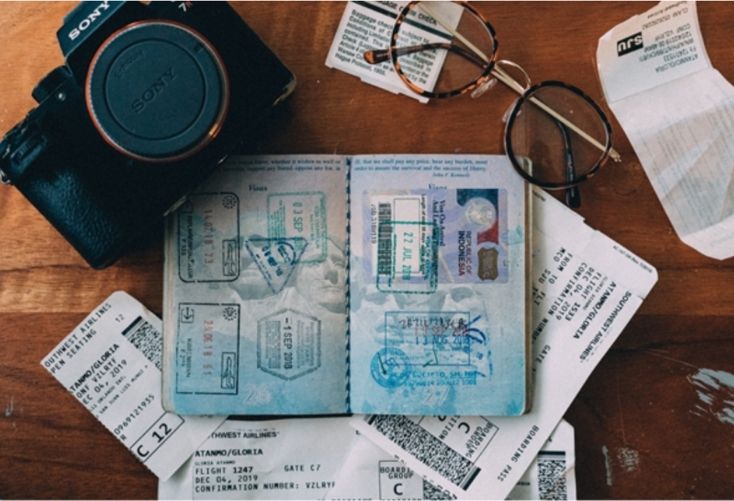- There’s more to the digital nomad lifestyle than simply booking a flight and choosing a coliving space abroad.
- International tax laws, work visas, labor laws, customs, and cost of living all play a huge part in the work-anywhere lifestyle.
- Andy Stofferis explains some of the key things to consider before stepping into the digital nomad way of life.
If only working abroad were as easy as taking a flight to your country of choice and living there indefinitely. But with different legal regimes, employment and labor laws, and customs around the world, digital nomads need to consider work visas, international tax laws,
and how to get recruited internationally before embarking on any journeys.
It’s also useful to do some research before leaving on the costs of living in the country you plan to relocate to so that you have realistic expectations around what you can afford and how much you will be able to save.
And you may also want to consider where you’ll live as committing to a fixed lease in a foreign country can be onerous and tricky to arrange (although there are also many alternatives).
For example, you may be interested in finding out about flexible coliving and coworking spaces which are quite popular with digital nomads. Oftentimes they are so attractive that people choose their destination around which coliving environments they want to be part of.
How to Get Recruited Internationally
If you’re planning to become a digital nomad, that means you’ll be moving location. So you’ll need to ensure that you’ll have a job wherever you’re going.
If you’re not self-employed, and if your current employer isn’t open to you working remotely abroad, then you will need to figure out how to get recruited internationally.
The first step to getting recruited internationally is to make sure you have an up-to-date profile on networking sites like LinkedIn and a CV that reflects the types of positions you want to apply for.
It’s good to highlight internationally recognised qualifications and any skills that will be relevant for jobs abroad like the ability to speak foreign languages or prior experience working abroad.
There are many useful websites that advertise remote positions around the world that are particularly popular with digital nomads.
Also bear in mind that certain digital nomad visas have strict requirements about where you can be employed, even if it is remotely. They may need you to have a job with a local business in the country that you’re moving to, which means you’d need to find local employment.
If that’s the case, try to network and engage with local companies and HR consultancies to see what local jobs are available. If you have contacts in the country you’re headed to, you may want to let them know that you’re relocating and looking for a position there. You can also try to seek out networks of professionals in your sector to see where the best places to find local remote jobs are.
Do your research into companies that you’d like to apply to for jobs, and set alerts so that you get notified about any position openings.
Paying International Taxes as a Digital Nomad
If you’re relocating within your own country, then you probably won’t have to worry too much about tax laws, although there may be some complex state or provincial laws to navigate.
What you want to avoid is being subject to double taxation. Some countries have international tax agreements that prevent you from being taxed twice, but there may be various requirements you have to fulfil in order to be eligible. You may need the services of a tax lawyer to figure out the tax implications of the country you plan to work in.
Some countries tax you based on your residency and where you live most of the time, while others tax you based on which country is paying your salary.
If you’re moving somewhere with a digital nomad visa, then the legal processes and tax implications for working abroad have likely been simplified. That’s because these countries typically want to regulate foreign workers and attract them to live there to help contribute towards their economies.
And while certain countries offer tax-free working arrangements for digital nomads, as a way of enticing them to live and work there, be aware that there can be complex and expensive requirements to get those visas that are tied in with citizenship and residency programs.

International Work Visas for Digital Nomads
Unfortunately, travelling the world while working isn’t as simple as just getting on a plane and relocating to your city of choice on a short-term tourist visa.
To be able to legally work in most countries around the world, even as a digital nomad, you usually need to apply for a work visa or digital nomad visa or even citizenship. In addition to needing the right paperwork, special work visas can also help digital nomads to stay in a country longer than they could on a tourist visa (which is usually up to about 90 days).
Eligibility to work in many parts of the world, also depends on your nationality and what overseas work visa opportunities your particular citizenship provides.
There are an increasing number of countries that offer remote work or digital nomad visas, which are popular choices for digital nomads. These include Antigua and Barbuda, Bali, Bermuda, Costa Rica, Sri Lanka, Croatia, Iceland, Malta, Estonia, Portugal, and Spain.
This is definitely an important factor to consider before moving abroad and when deciding which countries to travel to.

Health Insurance as a Digital Nomad
Depending on the type of visa that you apply for and get granted, there may be requirements in terms of medical or health insurance. This may include payment of upfront health insurance costs. Or you may need to pay (optionally) for medical aid cover while you are there if, for example, the state health system is weak or unreliable.

Where to Work and Live: Coworking and Coliving Options
Once you decide on a city to live in, it’s time to start looking for somewhere to live. Many digital nomads and remote workers enjoy coliving accommodation, which provides many benefits. This includes being connected with other travelers, flexible rental contracts and all-inclusive facilities like workstations and Wi-Fi.
When looking for accommodation, it’s a good idea to know what you want and need. For digital nomads, that often includes reliable and fast internet, the opportunity to network and meet other entrepreneurs and remote workers, and access to beautiful and interesting places.
When you start looking for places to live in a new city, it’s often a good idea to start looking for recommendations from the digital nomad community. There are many highly-rated coliving and coworking spaces globally that are popular with remote workers and digital nomads.
Examples of coliving accommodation include places like Outsite Bali in Canggu which has 9 private bedrooms with a pool, lush garden, fast Wi-Fi and workspaces, shared communal facilities like a fully-equipped kitchen, cleaning services, and fresh towels and linen.
Another example is Chateau Coliving in Normandy (France) which gives freelancers and remote workers a chance to live in a 12th century castle in the French countryside in an expansive estate. Enjoy free daily breakfasts, bikes to borrow so you can explore the surrounding areas, an extensive library and regular community events.
At Sun & Co. in Jávea, Spain, you get a coliving and coworking space that offers private and shared rooms, an open kitchen, great common areas, and a beautiful beach right on your doorstep. There are lots of skillshare sessions on offer and networking opportunities, where you can connect with like-minded professionals.

Costs of Living Abroad
It’s prudent to calculate, or at least estimate, the cost of living in the city you plan to relocate to, as that will affect your standard of living and your ability to save and travel. It’s important to be realistic about expenses in a foreign city and to really do your homework into additional costs that you may not be familiar with in your current city.
For example, you may need to pay for private medical aid, private security, and private schools for your children etc. These are costs that you may not be accustomed to paying for. And they may significantly drive up your overall cost of living in a city which you initially thought was very affordable to live in.
It’s also important to factor in costs like your flights and shipping costs to relocate and the cost of paying for short-term rentals when you first arrive, as these can mount up. Plus you may need to pay for expensive consulting services related to foreign tax laws and visa applications.
A good place to start when you begin drawing up a budget, is online cost of living calculators, which can give you an initial overview. And there are a plethora of expat forums and nomad communities where you can chat with people who have first-hand experience in making the move overseas that you intend to make, where you can ask for tips and advice.

Final Thoughts on Considerations Before Relocating Abroad
With increasing demand for location flexibility and independence as well as remote work, many people are considering becoming digital nomads. However, the lifestyle isn’t for everyone and there are many factors to consider before jumping in. It’s important to do proper and thorough research into the tax, legal and financial implications of such a move.
With a bit of planning, you can really improve your nomad experiences and make the transition more sustainable and enjoyable.
















